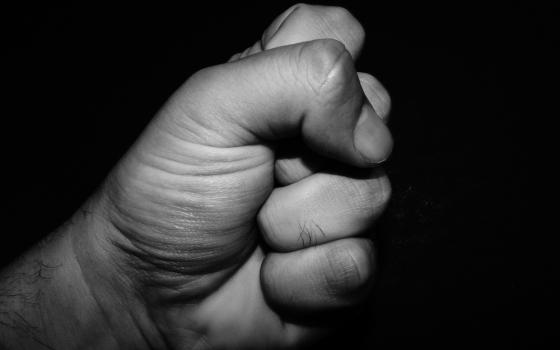The fragility of life is the biggest mystery to me. We do not know when death will knock at our door, or how prepared we are to face death. It is quite a harrowing experience when we receive the news of a loved one passing into new life almost unannounced.
A big tragedy occurred in the India-controlled part of Kashmir when a suicide bomber hit a Central Reserve Police Force bus; the occupants were on their way back to resume duty after their holidays. What an ill-fated day: Over 40 officers sitting in a bus; one planning to return home to await a new child's birth in just a few months; another planning to finalize the marriage of his eldest daughter; and another who had just been married for two months. One young man was having a conversation with his wife on his mobile phone, when out of the blue the bomb struck the bus. There was a huge explosion and the phone line went dead.
So many unfinished plans! So many loved ones never seen again, and voices that will forever remain unheard. So many children orphaned, so many women widowed. Death came unannounced and left many hearts broken, many limbs numb. Death is inevitable, yet when it comes because of lack of precautions, or from not paying heed to the warnings of intelligent people — how do we come to terms with it?
The "backstory" is that intelligence services actually had informed appropriate government agencies that there might be an attack on the bus. There are many questions being raised about how a car with over 300 kilograms of explosives could pass through the checkpoints without being detected; some are saying it was a planned strategy for seeking votes.
How can politicians play with the sacredness of life for the very ulterior motive of getting people to vote for them? How can the ruling party use the death of some 40 soldiers just to stay in power?
As the Indian nation received this news with shock and horror, the response was one of shame. We began sitting in judgment, began speculating, began reacting very unreasonably, not giving those still alive a chance to respond.
Throwing all reason to the wind, we took to the streets: some were in solidarity with the broken families, some were praying for peace for the departed souls, but a huge number became hysterical and shouted slogans against another nation, without having any solid facts. Since a terrorist Islamic group took ownership for the attack, Muslim women and men were looked upon with suspicion. Students were attacked, Muslims were hounded, and many had to run for safety and shelter.
We gathered together to express our gratitude and solidarity for the slain soldiers who had fought the good fight and entered eternal life. We lit candles, stood in silence, sent comforting "vibrations" to their families, and prayed for rest for their souls.
In that sea of humanity we tried to talk sense into some young people who were demanding violence. Will this hatred resolve our issues? Will it bring peace? Do we want more bloodshed? They were not ready to see reason — all they wanted was revenge. I prayed fervently each day with all my heart that better sense would prevail; we prayed with our office staff, and we spread the word through social media.
A very ugly face of India came forth, with some fanatics trying to prove they were loyal to the nation by shouting slogans against a particular community. As I watched the crowds reacting violently each day, I hoped that this would not turn into a civil war or break out into a third world war. Signs of hatred overpowered the scene as we silently watched humanity go mad.
But as in the story about Elijah in 1 Kings, after the storm there prevailed a gentle breeze: a so-called military "surgical strike" on an enemy target was announced to appease the bloodthirsty hearts. Not many bothered to find out if it was true, if it really happened … the smallness of the human heart baffled me. The hysteria was washed away, and people believed that the attack on a training camp was a battle won.
As I reflect on this episode, I am very upset, disappointed. We say we are a humanity who are educated, who are developed, who have entered the technological world — maybe that is true. But we have lost our humanity if we delight in revenge, hatred and bloodshed.
Humanity is one; it knows no language, no color, no race, no religion, and shares one common home, one Earth, one planet. To move from being exclusive is going to be a struggle, as we seek to become more inclusive, to respect and revere all living organisms, to care for and nurture life. We must take up the call of Pope Francis in Laudato Si' to move to one religion, the religion of humanity.
[Dorothy Fernandes is a Sister of the Presentation of the Blessed Virgin Mary from India. She currently serves as vice provincial of the Indian province while continuing to be deeply engaged with the urban poor of Patna, Bihar.]

